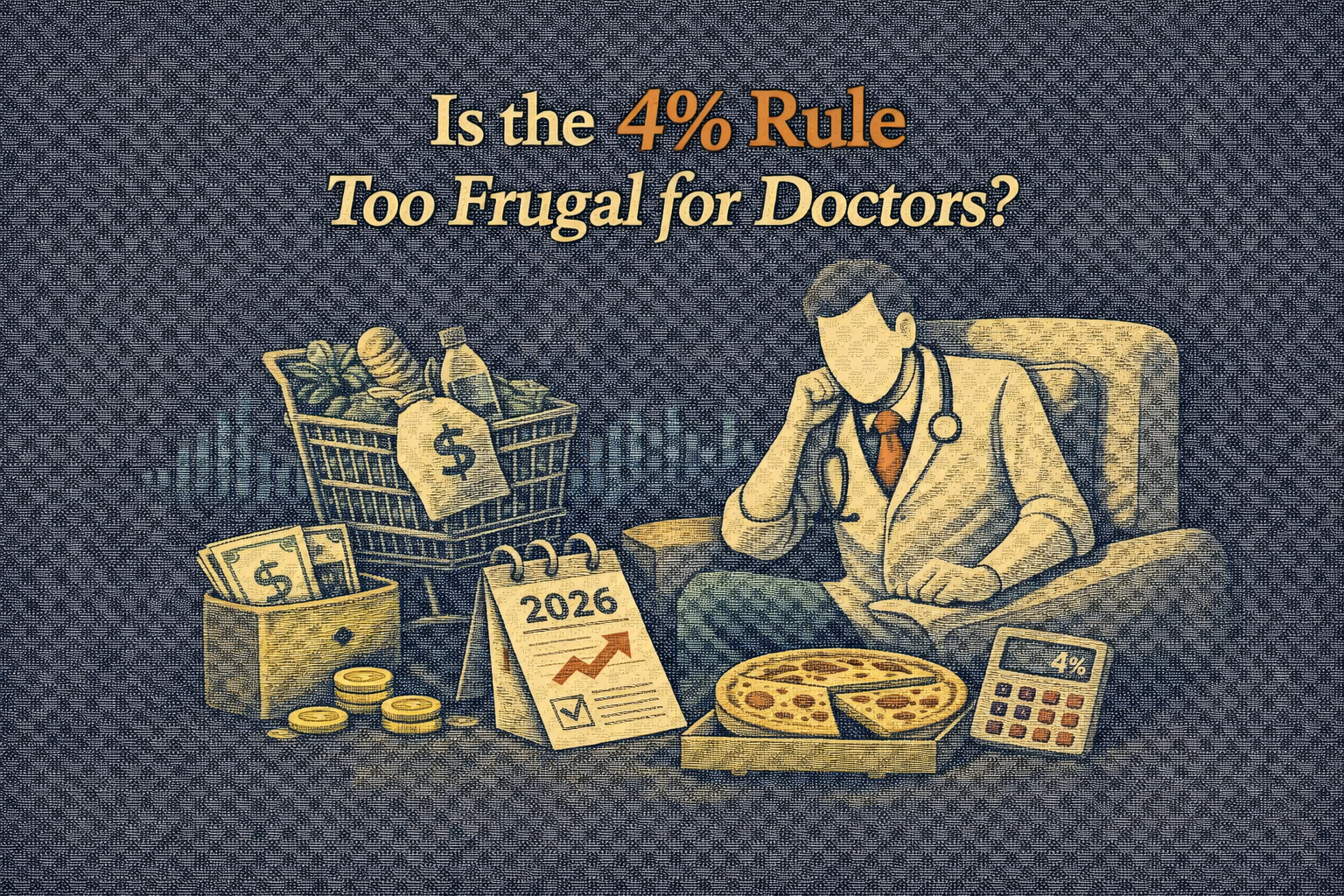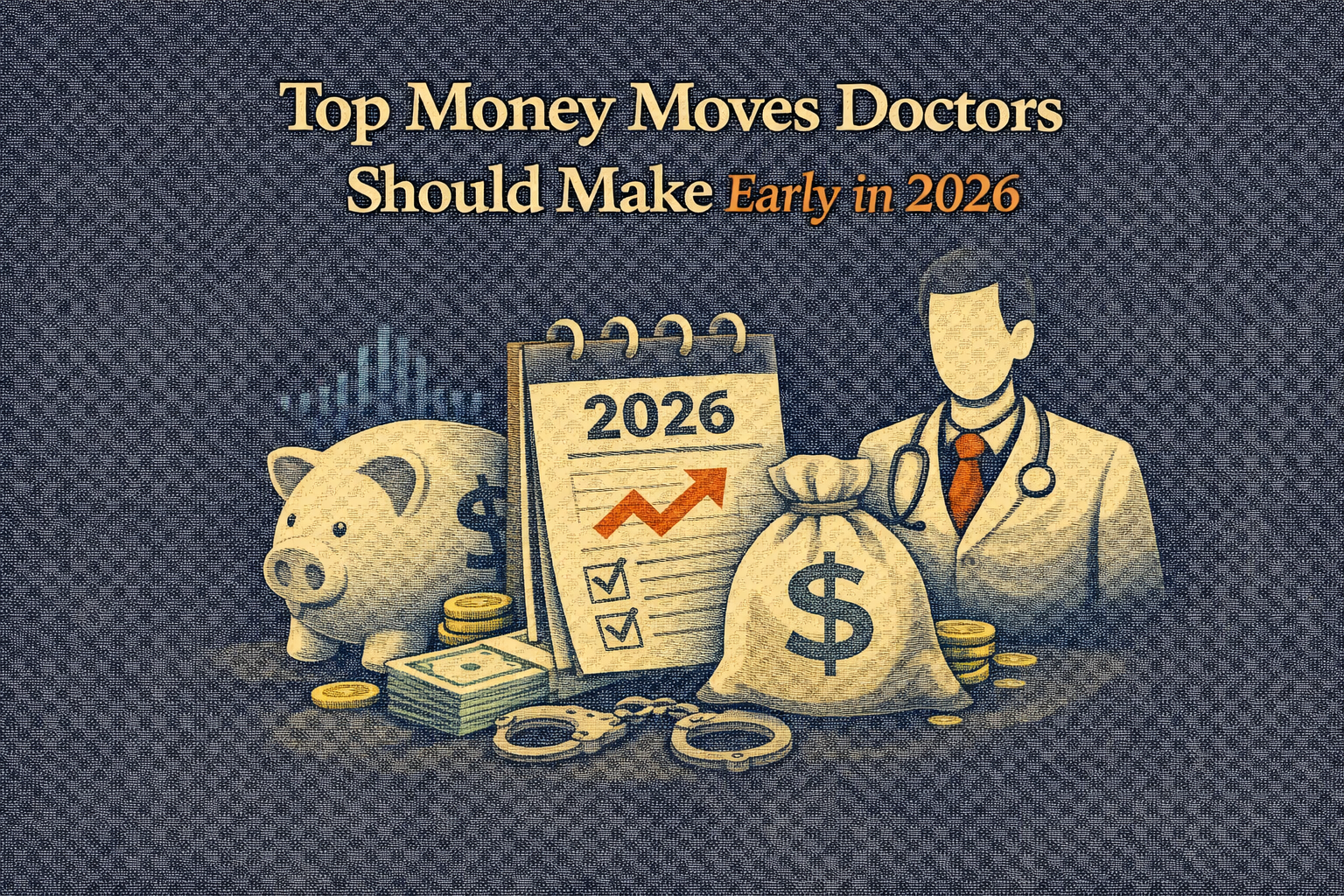When we decide to go into medicine, we are well committed to the idea of working in a field that is not only mentally exhausting but also physically taxing.
Most of us stick it out through decades, sometimes even beyond the average retirement age, which is already later than other professions in the U.S.. But some of us are led onto a different path.
Despite our best efforts, we might face a point where we’re forced to step back from medicine prematurely, whether it’s due to an injury or a serious medical condition. In that case, what happens?
While there is an argument to be made for the current early retirement wave and how that stems from a similar reason, i.e., burnout, it’s not quite the same thing.
Having to quit when you had a fulfilling career, simply because of a freak incident or a frightening diagnosis, can be disheartening and scary to navigate. So today, let’s discuss the effects of illness causing physicians to leave what they loved:
- How Often Physicians Quit Medicine Following A Medical Diagnosis
- Physicians Versus The Alienation Of Leaving Medicine
- Why It’s Important To Come To Terms With A Life Outside Of Medicine
Read More: What Types of Insurance Does a Resident Physician Really Need?
Doctor’s Order: Forced to Retire Early Due to a Medical Condition?
We rarely talk about doctors closing their practices following a concerning diagnosis, despite how normal it is. There isn’t much data about what happens when you are forced to step back compared to when you choose to do so.
Quitting medicine has become increasingly common, especially due to the current climate of the medical landscape. We are seeing doctors leave en masse, specifically in the primary care sector. The main reasons touted for one in five physicians retiring earlier than normal have been burnout and ‘other mental stressors’.
Also read: When Should Physicians Retire?
Burnout might start as a mental health issue, but if untreated, it can cause physical symptoms such as headaches, insomnia, and memory loss. It is also connected to the manifestation of gastrointestinal issues, respiratory problems, and even heart disease among physicians.
Burnout itself is a chronic issue. As prevalent as it is, it still takes time to develop and take root, which means that if it is caught and tackled early enough, it can be remedied. However, there are some situations physicians can’t come back from, no matter how much they want to.
That’s when doctors are forced to consider what matters more: their life or their career. It’s a hard decision to make, especially when you consider how much time and effort go into a medical career. Having to retire from it way before you estimated can be a blow, something almost unfathomable.
While some choose to do so, for example, if they practice FIRE, that’s not to say everyone does. Being forcibly removed from your career can happen to anyone. As physicians, we see perfectly able people having to leave everything behind following a scary diagnosis all the time. But rarely do we consider what would happen if the roles were reversed.
Read more: Own Occupation Disability Insurance
Occupational Hazards: How Susceptible Are Doctors To Forced Early Retirements?
The truth is that doctors face a variety of hazards in the workplace, from physical to chemical, biological ,and even psychosocial ones. All of these could result in an injury or illness so life-threatening that doctors would have to leave the profession to recuperate or even survive.
When the COVID-19 pandemic hit the U.S., one of the biggest concerns was the safety of those working in the healthcare sector. While the general public could quarantine and transition to remote work to continue their professions, the same couldn’t be said for doctors.
The pressure was on them to not only survive but also continue providing aid despite the fears of contracting a disease we knew very little about at the time. So, it wasn’t surprising to see that pressure from it all rose the physician burnout rate to a whopping 63%.
This meant that more than half of the community was actively facing issues that hindered their practice, and eventually led to many physicians scaling back hours or having to leave medicine altogether. The physical strain was evident, with physicians’ complaints ranging from fatigue and PTSD to autoimmune diseases.
Of course, even if you remove the pandemic altogether, it’s clear that doctors are more at risk of premature retirement due to illness and injury than others. The specialties most susceptible are surgeons, specifically those in high-stress environments such as emergency medicine, traumatic surgery, and orthopaedic surgery.
Consider yourself an emergency surgeon, fresh out of residency. You have the strength, drive, and resources to finally fulfill your career goals, but within a year of working, you have to stop because you were diagnosed with a disease that doesn’t allow you to work in a field as strenuous anymore.
Or perhaps you suffered an injury that is debilitating enough to pull you away from performing surgeries.
Research shows that 40% of practicing surgeons in the U.S. have reported facing one or more injuries during their work. Furthermore, 30% of surgeons state that the injury was harsh enough for them to take a leave of absence from work entirely.
And even if you don’t work in surgery, doctors are still more vulnerable to occupational hazards compared to other professions. It is estimated that there are more than 400,000 incidents of accidents due to sharp objects in the country, with most of the injuries being sustained by the medical fraternity.
This can happen to anyone in the medical space. No matter how meticulous you are with your practice, life often has its plans. Suffering an illness or sustaining an injury can pull the best physicians away from their craft.
Accidents Happen: Tackling Life Afterwards
Retirement is already a bit of a minefield for physicians, especially if they have remained very busy in their careers. That transition from full-time work to suddenly having nothing to do can be especially jarring.
It’s even more so when you have to retire unplanned, with nothing sorted out.
Your patients may be concerned about how they will manage their treatment plans now that you aren’t in charge. There is the entire process of shutting down a medical practice, including whatever staff you’re working with.
The loss of physician autonomy could be very mentally stressful.
Retirement from a medical condition means you were likely in the middle of many projects and had to halt all of them without any secondary option.
There is no transition to ease you into it, just a stopgap on a career you worked so hard for. So, the alienation that follows is understandable. Suddenly, you aren’t the clinician anymore, you’re the patient.
It is not easy to see yourself outside of the main role of ‘doctor’. That’s why many physician well-being organizations highlight the importance of a support network outside of medicine, especially during retirement. It’s crucial to realise that an early retirement doesn’t mean the end, but rather a beginning for something new.
Reframing a forced stop in your career as the period to start spending more time with family and friends is helpful because it reminds you that said career wasn’t the focal point of your life. In the end, when everything is said and done, all that remains is community.
And that community is what helps us move on, gain new experiences that we wouldn’t have normally.
So, a forced retirement might be one of the most traumatizing experiences a physician has to endure. But that doesn’t mean it’ll define the rest of their lives, which have so much else to offer.
Image Credits: Bermix Studio












